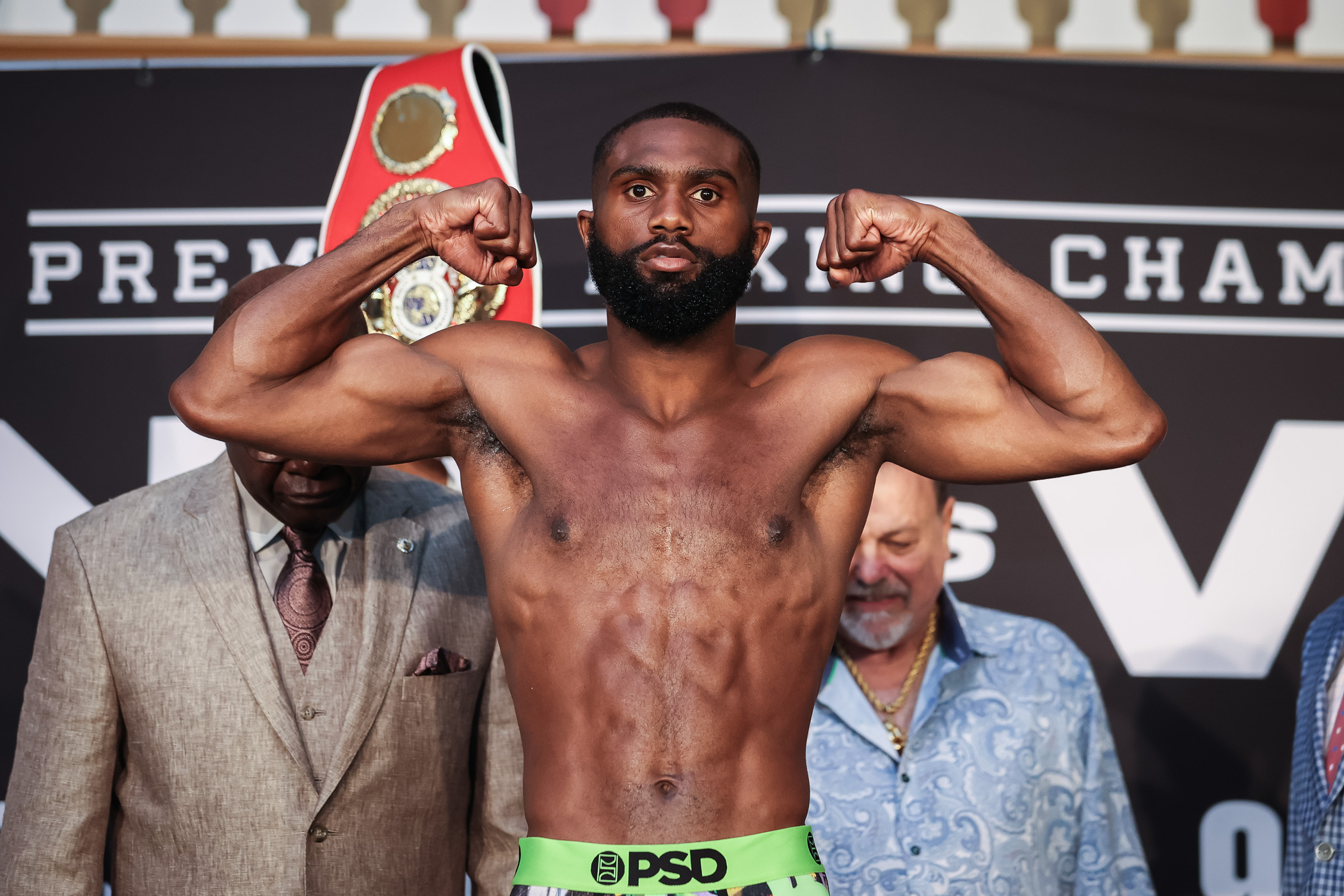Shawn Porter has praised the “beautiful” understanding that exists between Jarron Ennis and his father and trainer Derek after seeing Ennis elevated to IBF welterweight champion.
The IBF this week stripped Terence Crawford, who in July became the undisputed champion with victory over Errol Spence, and declared the 26-year-old “Boots” Ennis their new champion – despite his most recent victory, over Roiman Villa, coming three weeks before Crawford-Spence.
Porter is among the IBF’s former champions at 147lbs and, similarly to Ennis, was trained and guided by his father Kenny. He therefore recognises the potential difficulty that can exist in those circumstances between father and son, and in the case of Ennis and his father “Bozy”, believes the chemistry between them to be key.
Asked how he would described the dynamic between Boots and his father, Porter told ProBox TV: “Beautiful. Beautiful. But guess what? This is Bozy’s third time around the block. He’s got two other sons. [And] they aren’t Boots Ennis. Boots is it – and the age gap between Boots and Bozy is enough for Bozy to not want to be overbearing. For Bozy to not want to be controlling and to not want to be as much in the camera and the spotlight and all those other things.
“Boots has got it made over there. Looked like Roy Jones Jr [when beating Roiman Villa]. I described him as like the movie, A Beautiful Mind, with Russell Crowe. They show how he thinks and his mind. I wonder how Boots Ennis thinks and sees things in the ring – if he sees things differently to we do, because his precision and timing, and all of that, is just so different.
“It truly is [a psychological challenge between a father and son]. This is what truly helped me – let’s say a father has his son when he’s 20 years old. The separation’s never going to change. The dad’s always going to be 20 years older than his son; that means, psychologically, it’s hard for that dad to see that son when that son’s 13. He’s still going to see the three year old. When that son’s 23, he’s still going to see that three year old.
“It gets to a point where a son wants to be respected; treated like a grown man; spoken to like a grown man. The list goes on. The father does not have that connection to what is true, because the father’s still going to see the three year old, no matter what. A lot of times, the respect the son expects, the dad cannot adhere to that – the father’s still wanting respect from the son, the son has matured. It becomes this rift; this friction.
“I was able to manage my emotions to respect my dad no matter how he said something; how he did it; whatever the case may be, and I was always able to say to myself, ‘He sees the kid – he can’t help it’. I was able to look past all of the rift and friction we had. That’s why a lot of fathers and sons don’t make it. The father does not know how to adjust and transition. If they’re not willing to do it – certainly if one or the other isn’t willing to do it – they won’t survive.”
Ennis being crowned world champion came in the same year in which, in successive months, the father and son teams of Bill and Devin Haney, and Teofimo Sr and Teofimo Lopez Jr, recorded their finest ever victories – respectively over Vasyl Lomachenko and Josh Taylor.
Haney followed defending his undisputed lightweight title by agreeing to move to super lightweight to challenge the WBC champion Regis Prograis, and if he wins may rival the WBO champion Lopez as the finest 140lbs fighter in the world, and Porter said: “[The dynamic between Teofimo Sr and Jr] is tough. I’m on the outside looking in, but they’re the same person.
“They both wear their hearts on their sleeves; they’re both boisterous about everything you could speak on, and they’re both really, really tough. It makes for clash on clash. The things we see in public – I know personally it’s times ten the things we don’t see. It’s going to be something hard for them to manage all the way up until the end.
“I don’t think fathers make better coaches. Teachers make better coaches. My father was a teacher. He would break everything down and show you how to do it and reinforce it like a teacher would. A teacher is not going to graduate you if you still can’t add two plus two. ‘We are not going to multiplication if this addition is not working the way it’s supposed to.’ And a lot of fathers don’t know how to do that.”

